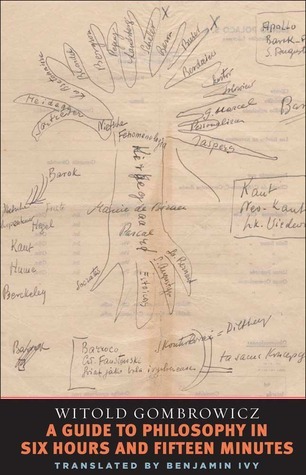What do you think?
Rate this book


120 pages, Paperback
First published January 1, 1971
For us, the Cosmos must have a cause because [sentence incomplete] internally contradictory idea.
***
This will to live, in order to be seen as phenomenon, must assume [sentence incomplete].
***
Structuralism is a difficult thing to define because it originates in different regions of thought. It is both the fruit of mathematical thought, like the linguistic studies of Saussure, and [sentence incomplete] and in the sociology of Lévi-Strauss and even [the text breaks off here].